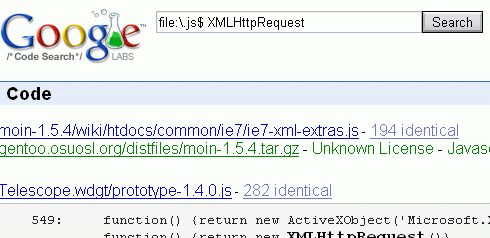Google Q3 conference call
After a little bullshitting about deals in the first, canned part of the call, Google's top execs made some great points in the Q&A section of their latest investor conference call.
- The first questioner asks why Google doesn't use its cash for future purchases, rather than the $1.65 billion in stock it spent on YouTube. The assumption is that Google's stock is undervalued, so using cash would make a better deal for Google. CFO George Reyes says, "Going forward we're going to use cash."
- Co-founder Sergey Brin explains about consolidating products: if Google keeps launching new products, users will have to search for a product to use it -- "you will have to search before you can do a search." Instead he wants to integrate what Google already made. Thus the combined image/web page results for some searches.
- A senior VP says Google's video ads are doing great. No mention of whether they're coming to YouTube.
- Schmidt won't say whether YouTube will be profitable. "We don't give [financial] guidance."
- Schmidt also stonewalls on the reaction of MySpace (which recently signed a near-billion-dollar deal with Google) to the purchase of YouTube.
- Why did Google have such a great quarter, unlike its competitors? A senior VP chalks it up to "incredible" product improvements, geographic expansion, and the success of new ad formats.
- Brin stretches that annoying "low-hanging fruit" metaphor: "In a sense, you might imagine that the low-hanging fruit have been picked. But in fact, we have at the same time built ladders and are reaching for perhaps even larger, higher-hanging fruit."
- Schmidt closes by wishing senior VP Omid Kordestani a happy birthday. Cute.



















